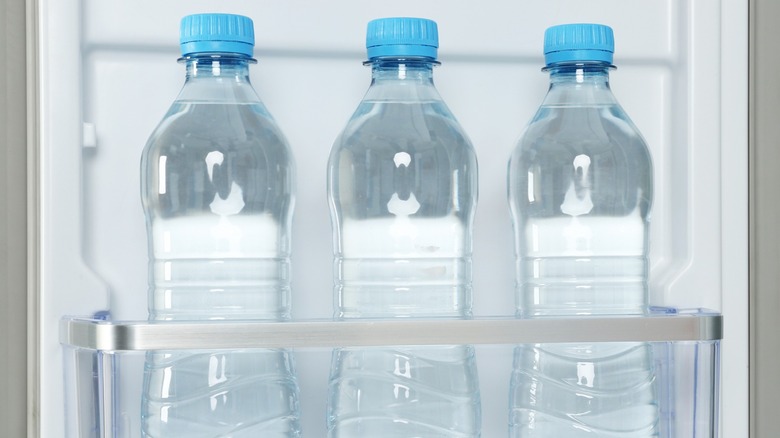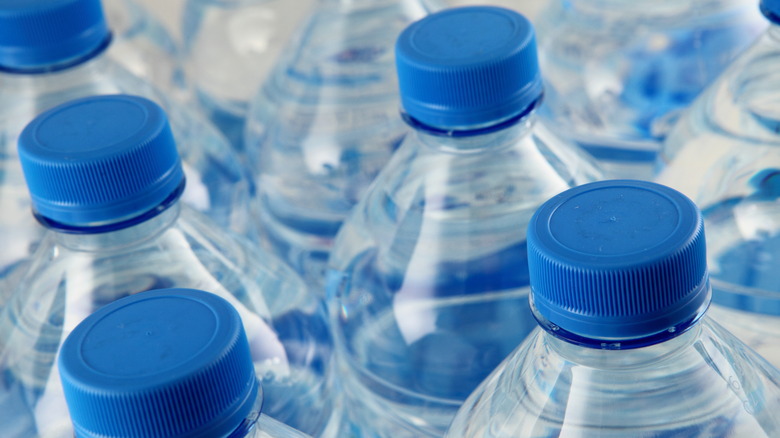The Worst Place To Store Your Bottled Water
Storing bottled water can be a challenge. It is an important item to stock up on, for both reasons of convenience and in case of emergency; however, its bulky dimensions make it hard to stow away. As such, you may be tempted to find storage solutions beyond your pantry: in a coat closet, under a bed, or even in your basement. When it comes to correct water storage, many of these options are acceptable, but there is one factor to keep in mind. No matter how desperate you are for a place to keep your bottled water, never keep it somewhere hot.
The reasons not to store bottled water in a hot environment — such as in a sunny car, at an outdoor event, or in a garage without air conditioning — extend beyond just matters of taste. Yes, doing so gives the water a somewhat strange flavor, but more concerning is why this happens. Hot temperatures have a chemical effect on the plastic from which these bottles are made, causing the normally stable molecules of plastic to leach into the water. These molecules include substances like antimony and bisphenol A (BPA), which have long been linked to health issues. As such, placing bottled water in a hot place for an extended period of time is risky to both your taste buds and your well-being.
How to properly store bottled water
The best way to keep your supply of bottled water fresh and safe to drink is by keeping it in a cool, dry place away from excessive sunlight (which can also render bottled water unsafe to drink). You can even get creative and store water bottles in a rack on your pantry door. When stored correctly, bottled water can last for a long time, with most expiration dates listing a shelf life of up to two years. While it may seem strange for purified, sealed containers of water to have an expiration date at all, it is important to heed these guidelines, as even without heat and light the plastic bottles will still degrade over time.
If rotating your bottled water supply every other year seems like too much of a hassle, there are some alternative water storage solutions that you may wish to explore. Water that has been bottled in glass, for example, does not pose the same health risks regardless of storage environment or age because glass is non-toxic and inert (meaning it doesn't leach materials). Another option is canned water, like the popular brand Liquid Death, which uses metal as a container and therefore can last for decades with no issue. These options can be more expensive and are sometimes harder to find, but for those seeking a long-term stash of water, they may be well worth it.

